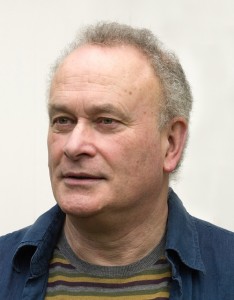
A Feast of Fresh Music at the New World
Colin Matthews. (Photo by Maurice Foxall) This has been a good season so far for new classical music, with big premieres from Carlos Rafael Rivera and Daniel Bernard Roumain in the past couple of months, and some more fresh music debuting this weekend at the New World Symphony.
The much-celebrated British composer and conductor Oliver Knussen, a frequent New World guest, will lead the orchestra and violinist Leila Josefowicz in the American premiere of the violin concerto by British composer Colin Matthews. In addition, the orchestra will perform Wanderlust, a three-movement work written last year for the Cleveland Orchestra by the young American composer Sean Shepherd.
The other works are just as unfamiliar to most audiences: Knussen’s orchestration of five late preludes by Alexander Scriabin, and the Symphony No. 10 of Nikolai Miaskovsky, one of 27 written by this Russian composer often considered the father of the Soviet symphony. This is a most unusual program, daring and original, and it will bring out the composing community. The Matthews concerto belongs to Josefowicz, who gave its world premiere in October 2008 with the City of Birmingham Symphony, with Knussen conducting. She’ll perform the work next month in Helsinki, then give two performances in Britain of Knussen’s own concerto; later in the year she plays the concerto of Esa-Pekka Salonen, who stepped down from the leadership of the Los Angeles Philharmonic to pursue his composing career.
I don’t know a lot of Matthews’ music, but I’ve been getting acquainted with it through the Web, and it has a forthrightness and bigness that I find attractive. (Here’s a performance of the first movement of Broken Symmetry, an orchestral work, conducted by Knussen.) I’ve also been able to find a download of the concerto from the Proms performance in July through someone who runs a blog called 5:4; his or her review of the concerto is mixed, but other auditors were more enthusiastic.
On first blush, there is something reminiscent of the Berg violin concerto in the Matthews piece, as several critics noted, and its orientation is primarily lyrical. It’s largely atonal, but not in a random way; it has a clear narrative arc and a canny use of orchestral color, particularly in the second of its two movements, which is built around a series of repeated pulses that are taken up by different sections of the orchestra.
Josefowicz plays with mastery and impressive commitment, and Matthews is most fortunate to have such a persuasive advocate for his concerto. There’s plenty of Sean Shepherd’s music available at his website though Wanderlust isn’t there yet. There are some short, evocative piano preludes to be heard here, as well as orchestral, chamber and vocal music, and it’s well-crafted stuff, with a high degree of personality.
The breadth of his work also is impressive in someone only in his early 30s, as are his commissions, which include work for the New York Philharmonic as well as the Cleveland Orchestra. He hails from Reno, Nev., as you can hear in this interview he did with Reno Philharmonic director Laura Jackson.
Orchestral programs I’ve been to over the past four or five years have been noticeably more diverse, as audiences and performers get further away from the original middlebrow consensus that dictated the core repertory we’d find on the bulk of symphonic concerts.
Although a concert such as the one coming Saturday (it starts at 7:30 p.m. at the Lincoln Theatre on Miami Beach) is still relatively rare, it’s less of a total outlier than it used to be. And that says good things about the health of contemporary classical music, and the listeners for whom it’s written.
Recent Content
-
Artsarticle ·
-
Artsarticle ·
-
Artsarticle ·

